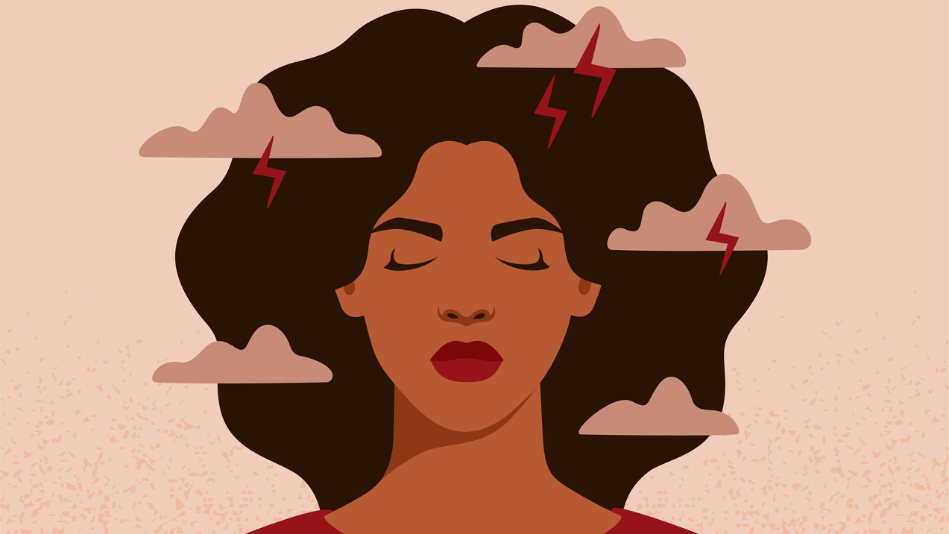
The Best Way to Deal with Misfortune
Even when the gates of Heaven are closed to prayers, they are open to tears. — The Talmud
I used to be a woman who cried at Hallmark commercials. Maybe you are as well. But for the last couple of years, as the economic ground beneath all I've accomplished and cherished has shifted so profoundly in a life-shattering reversal of fortune, I’ve trained myself to stay alert when the roar and the rumbling of what could be catastrophic change begins. As anyone who lives on a geographic fault line where earthquakes are frequent will tell you, it’s the aftershocks you need to worry about. Just when you think you're safe again, you can get buried alive. Tears are too much of a distraction at times like this, so I've learned to adapt to a behavior that is completely contrary to my natural inclinations: no crying. I simply cannot allow myself the luxury of falling apart if the world does.
Not just yet.
Other times, the shock of whatever heartbreak has just befallen you is so great, and so unexpected, your visceral reaction is a hand to cover a stifled scream as your knees buckle. This is what happens to other people, but not you. You pay your bills on time, have a deeply personal relationship with God, do good works, are the best mother in the world, the most devoted wife, loyal friend. A moment ago you had dreams, vacation plans, routines, the car pool run, vet appointments, budget meetings, retirement pension, conference calls, soccer games, health insurance, dinner reservations, a home. Then the doctor calls. The Dow plunges. A drunk runs a red light. The bank forecloses. There's a menacing knock on the door. The court summons arrives, or a police car slows down then turns into your driveway. Photographs slipped through the mail slot reveal that your husband has not been working late at the office. In an instant you lose your job, your home, your health, your marriage, or the unthinkable, your child. We vanish in plain sight along with our good name, our identity, our honor, our sense of right and wrong. Our security. Our future. The day after tomorrow.
All the money’s gone? How can that be? No, you don’t understand. I didn't do anything wrong. There must be some mistake.
But no, there is no mistake. Only beautiful lives gone awry, promises that can no longer be kept, and hearts rent asunder. In this "ordinary instant," as Joan Didion so exquisitely calls the moment when each of our lives changes utterly and forever, we are catapulted into the realm of the unspeakable.
There are simply no words to express or console. No explanation, no reasoning, no self-help mantra, no belief big enough to surmount this anguish at this moment. No secret on earth to help you come to grips with the unfathomable. All we know is that we are stunned, shocked, hurt, grieving, and groping with too many unknowns to consider and too many contingencies to handle as we attempt, in wrenching pain and agonizing vain, the harrowing undoing of what cannot be undone.
And now, sweetheart, now you cry.
Misery Has Her Moments
Sorrowfully accepted brings its own gifts. For there is an alchemy in sorrow. It can be transmuted into wisdom, which, if it does not bring joy, can yet bring happiness. — Pearl S. Buck
Misery is, by her own nature, a passing phase of sorrow, one that does not linger uninvited. Her sojourns seem to be part of life's required curriculum, perhaps because Misery endows us with compassion and empathy. A time will come when—because we know how much it hurts—we will be able to help another.
Artists will confess, after a few drinks, that the pain of Misery can sometimes be bittersweet. Down through the ages she's been the most inspiring of muses. Poets write tributes to her, musicians sing her song, playwrights dramatize, and filmmakers embody her cinema verité with every take. What they all are trying to do is work with Misery's mystical power to transform, because after she’s come to call, we are never quite the same. There is a composite echo, a deeper vibration to the adagio of our days and our response to life. I remember having a conversation with Rabbi Harold Kushner about life's tragedies; he told me something that I've never forgotten and so pass on to you. Be very sorry and pray for the "lucky" people, the people you might envy, those who have not known the vestige of sorrow, or grief, or misery before they are forty, because their ledgers of loss will be incalculable. Life is the ultimate forensic accountant.
So how do you deal with Misery? Some of us dance around her, playing out her many moods and wearing the mask of ennui as if nothing matters, when the truth is that everything matters. Others of us ignore her in a pointless pretense of dissociation and denial. Yet there is really only one way to deal with Misery. Accept her presence. Like most experiences in life, we must acknowledge the passage gracefully and let her move through our lives because she brings with her a hidden gift. But we must be patient enough for her to reveal it. And so we find ourselves reciting the narrative of our grief again to family, then friends who will listen, and then, when they won't, strangers on a train, our pets, or the peeling wallpaper in the kitchen, as Misery's morning cups of tea become tumblers of wine or whiskey mixed with our tears at twilight. Finally, miraculously, one night we stumble into bed and for the first time in a while don't toss and turn but sleep deep and morning comes. Oh yes, my darling Reader, Miss Misery does have her moments of healing.
"It is in the middle of misery that so much becomes clear," the poet and Jungian analyst Clarissa Pinkola Estés reassures us. "The one who says nothing good comes of this is not yet listening."
 Peace and Plenty (Grand Central Publishing; 2010) is Sarah's answer to the world's (and her own personal) fiscal crisis. Writing in the style so beloved by her millions of readers around the world, she weaves together in this deeply personal money memoir to inspire and motivate readers who are mired in economic problems today.
Peace and Plenty (Grand Central Publishing; 2010) is Sarah's answer to the world's (and her own personal) fiscal crisis. Writing in the style so beloved by her millions of readers around the world, she weaves together in this deeply personal money memoir to inspire and motivate readers who are mired in economic problems today.











